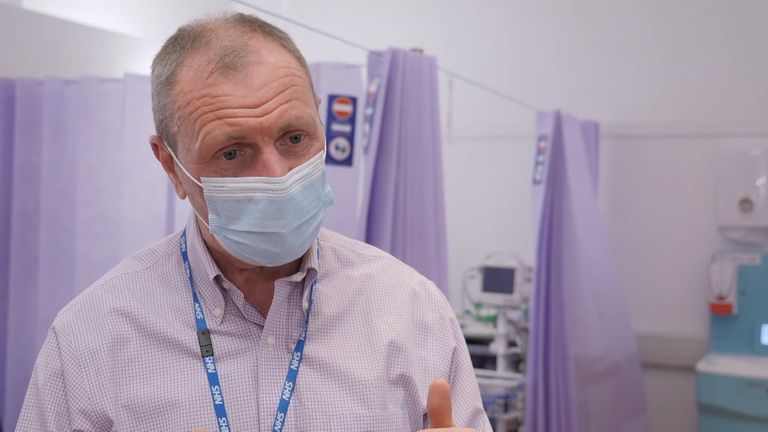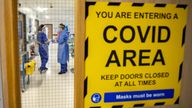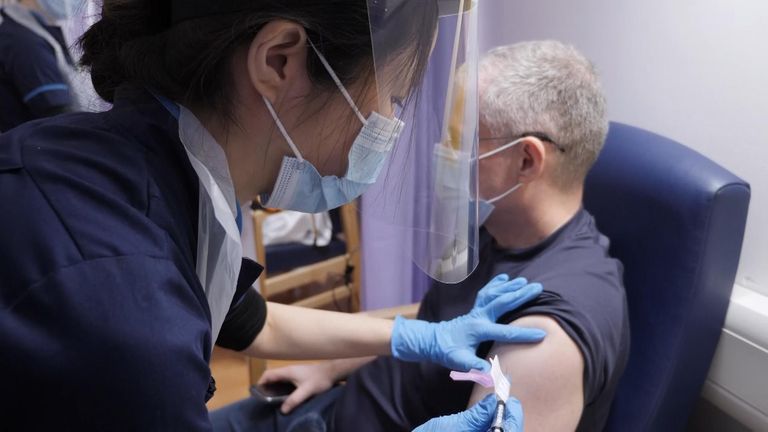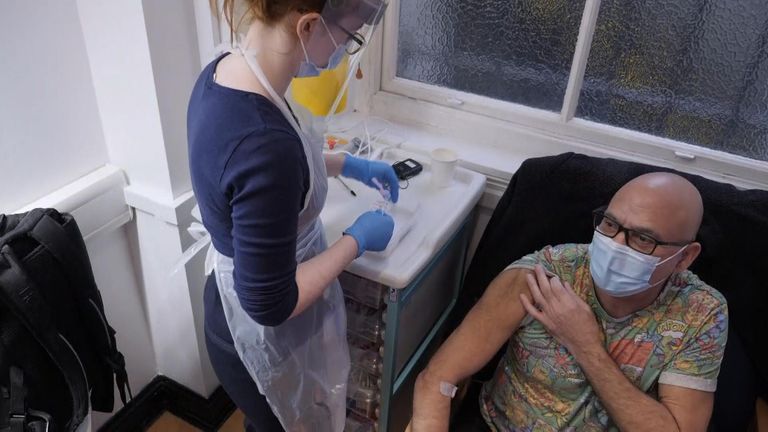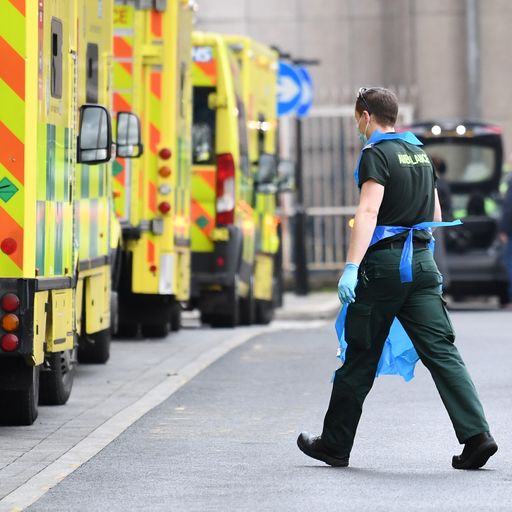COVID-19: 'Good reason to believe' vaccine mix and match will improve immune response, study says
Researchers are giving volunteers first and second doses of different vaccines to see if it can offer greater protection.
Tuesday 9 February 2021 21:55, UK
A study has been launched in the UK to assess the benefits of mixing and matching COVID-19 vaccines.
The trial will compare the immune responses in volunteers who are given a dose of the Pfizer/BioNTech vaccine followed by the Oxford/AstraZeneca vaccine - and vice versa.
Researchers will also assess the impact of leaving a gap between doses of four or 12 weeks.
The study is being run by the National Immunisation Schedule Evaluation Consortium (NISEC) and volunteers will have regular blood tests to assess their levels of antibodies and T-cells, which help to clear infections and act as an immune memory.
The search began last week to find more than 800 participants aged over 50 at eight trial centres in England, and on Tuesday vaccinations began at one of the sites, University College Hospital in London.
Professor Bryan Williams, the trust's head of research and consultant physician, told Sky News: "What has been seen before when you have two different types of vaccine (is) you can sometimes get an even bigger immune response than having the same vaccine twice."
It is hoped that the approach could give people more protection against the coronavirus.
Prof Williams said the ability to mix and match vaccines would also give the vaccine roll-out some flexibility, which could be useful if there were any vaccine supply issues.
He said: "There is still always the possibility of a precarious supply.
"If you have already delivered a certain vaccine to everybody, it would be really helpful to know whether you can give an alternative vaccine for the second vaccine."
Volunteers told Sky News they wanted to play a part in ending the pandemic that has cost more than 110,000 lives and shredded the economy.
Julian Van Loxton said: "If I can do anything to help, then I'll do it."
Mo Yusuff added: "Anything that is going to help save lives and speed up how they can vaccinate people is an advantage."
Professor Vincenzo Libri, principal investigator for the Com-Cov trial at UCLH, said there was "good reason to believe" the mix and match strategy will improve immune response "because of the two different (vaccine) technologies".
But he warned that the number of volunteers in the trial was too small "to firmly conclude whether the combination is effective against all the possible variants".
Minister for COVID-19 vaccine deployment Nadhim Zahawi said earlier this month: "This is a hugely important clinical trial that will provide us with more vital evidence on the safety of these vaccines when used in different ways."
Dr Peter English, a consultant in communicable disease control at Public Health England, added: "Many vaccines work better if a different vaccine is used for boosting - an approach described as heterologous boosting.
"Examples include hepatitis B, where some people respond poorly to vaccination but better if a heterologous booster is given."
The trial will take a year and the first results are not expected for at least three months.

